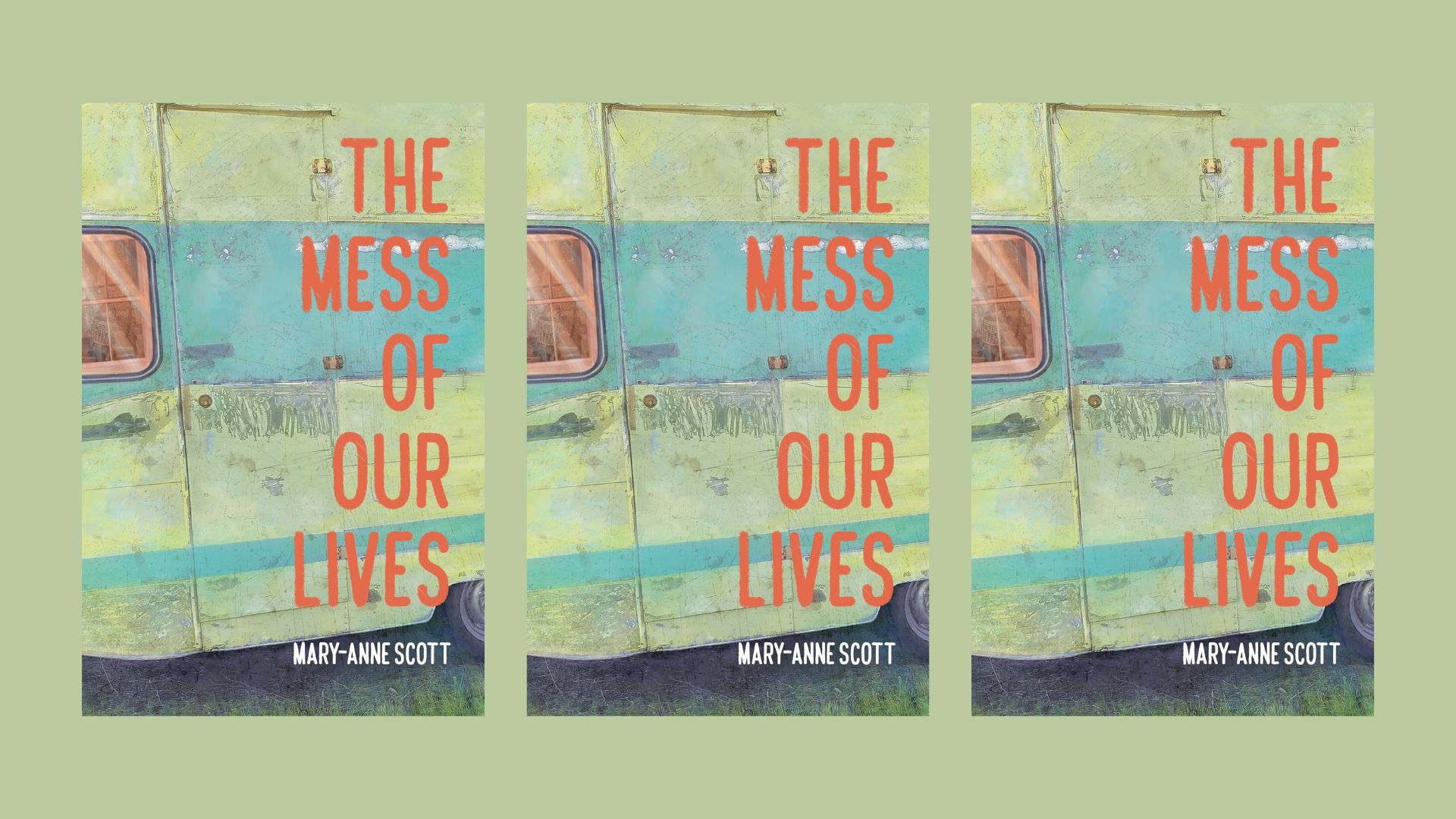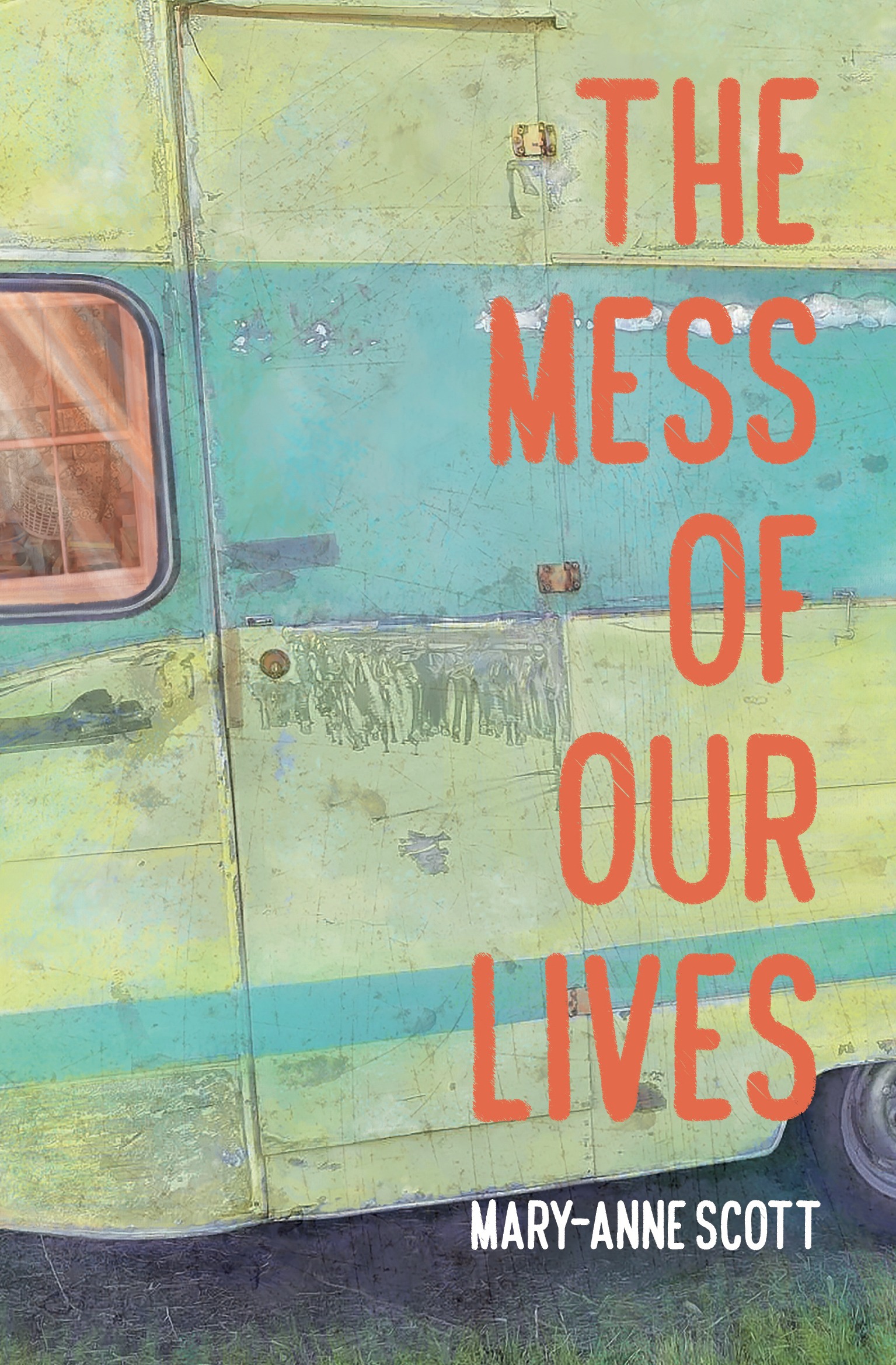Elizabeth Heritage reviews Mary-Anne Scott’s latest novel for teens.

We have rats in our house but it’s on purpose, as pets. In The Mess of our Lives, the new YA novel by Mary-anne Scott, there are rats in the house too, but not in a fun way. Seventeen year old Jordan has been forced to move into a caravan in the back yard because his mother’s hoarding has rendered their home unliveable.
When we meet Jordan, he’s working hard to keep the circumstances of his life a secret from the outside world. He’s afraid that ‘their lives would be blown open for everyone to see: The Baxter Children Freak Show. He couldn’t bear that.’ Jordan just wants to keep his head down, finish school, and get the hell out. This self-imposed isolation means that Jordan doesn’t have many friends because he can’t invite anyone over. ‘“Lonely” was a sucky word, almost as crappy as “hoarding”.’ He can’t even DM anyone because he doesn’t have a computer. Jordan tries to get his mother Susan to buy him a phone but she only spends money on an endless stream of more clutter. Even getting her to provide food is a fight every time. Hopelessly, he demands she buy him a guitar.
Jordan just wants to keep his head down, finish school, and get the hell out.
Jordan’s passion is music, especially songwriting, and one of the best people in his life is his music teacher, who helps him to apply for a scholarship that could be his ticket out. But Jordan’s desire to leave is complicated by his 11-year-old sister Tabitha, who depends on him. ‘He wanted to protect her but he also wanted to be free of her sadness and neediness.’ I found Jordan to be a compelling protagonist and quickly started to empathise with his point of view. ‘The enormity of his lost childhood washed over him and he clutched the door frame for support. He felt sorry for himself and angry at Susan.’ Jordan’s anger builds until he starts to become frightened of his own rage.
The pestilent conditions of their home life are making Tabitha visibly ill, and Jordan knows that it’s only a matter of time before the state steps in. Jordan is understandably wary of this, and I was expecting the main drama of the novel to come from his being caught between abuse from his mother’s neglect versus abuse from the systems of the state. Instead, the tension is driven by Jordan’s and Tabitha’s directly competing needs: he wants to leave, but, aside from Susan, Jordan is his sister’s only known relative. ‘“Duty? What do you mean I have a duty?” The word alone made him gasp for air.’
One thing Scott does very well is highlight the insufficiency of a mother’s love in the abstract when that love fails to manifest in actual care. Adults keep telling Jordan that Susan loves him, but the hollowness of this assurance makes him angry. ‘Everyone’s so sure they know about “mother love” as if it’s a fact. Where was my love?’ … [to Susan] ‘WHY DO WE LIVE LIKE THIS? … Do you hate us? … You’re screwing up my life and you’re totally wrecking Tabitha’s.”’ Whatever Susan may privately feel for her children, she is failing to put that love into practice.
Jordan is caught in a heartbreakingly realistic nightmare…
The novel makes a base assumption that the forces of the state are benign, perhaps reflecting the author’s and characters’ (presumably) Pakeha identity. When we meet the local police officers, for example, they are heroes, rescuing Tabitha when Susan’s hoarding reaches a crisis. Far from being a threat, as the police often are, especially to brown kids, they actually apologise to Jordan for not having stepped in to help earlier. Similarly, upon her condition becoming known, Susan quickly starts to receive home visits from a specialist mental health practitioner, despite living in a small town.
In her author’s note Scott thanks the many social workers and police officers she has spoken to as research for this book, but does not mention having interviewed any young survivors of those services. I should also note that if, like me, you are a queer reader always on the lookout for representation, you won’t find it here.
Despite this, though, I do recommend The Mess of our Lives. Jordan is caught in a heartbreakingly realistic nightmare to which Scott resists the urge to find a happy ever after. Impressively, she manages to give the novel a narratively satisfying ending that nonetheless leaves many important questions unanswered. I wish she had brought this willingness to reckon with painful realities to systems of power as well as families, but I’d still be keen to read more of her work. Recommended for teens and those interested in issues of parentified children.


Elizabeth Heritage
Elizabeth Heritage is a Pākehā arts journalist and freelance publishing professional, and does comms for the Human Rights Measurement Initiative. She is based online at www.elizabethheritage.co.nz and IRL in Wellington.



